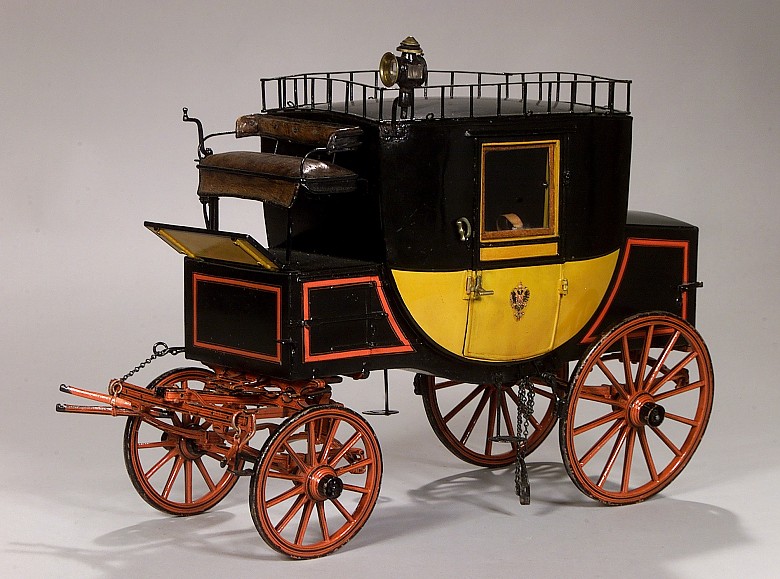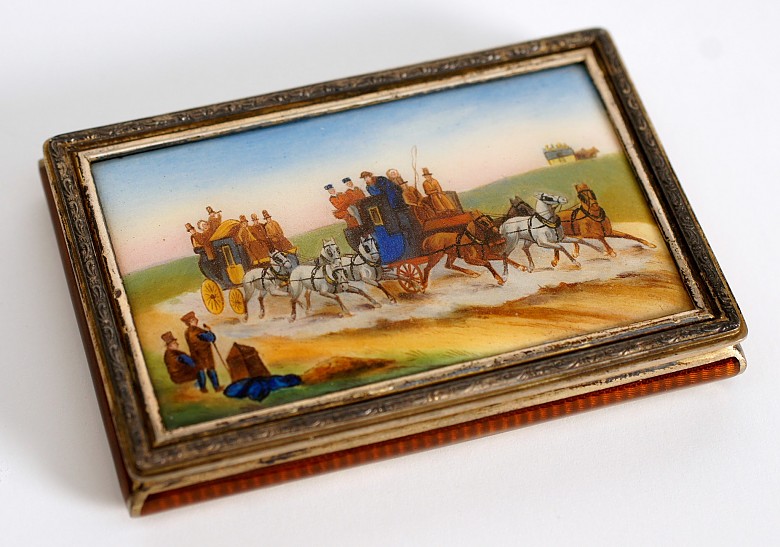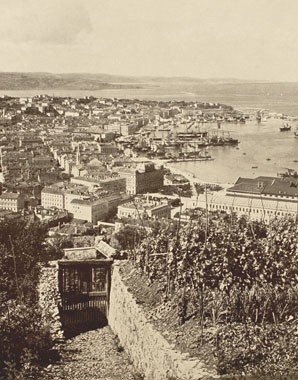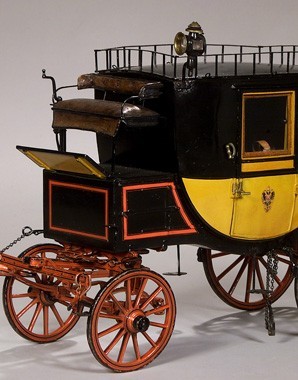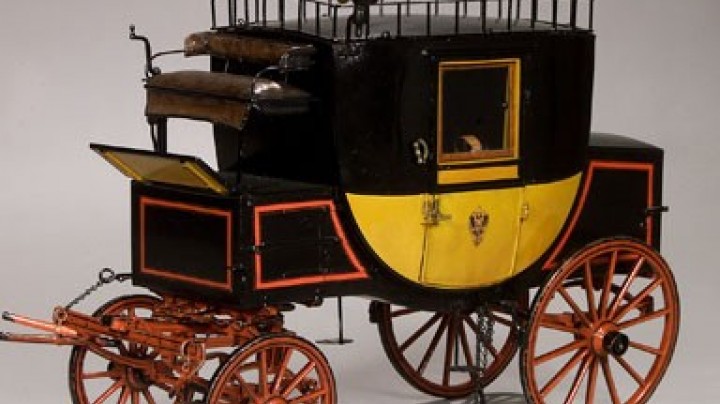Through the Monarchy by mail coach – Improvements to the road network
In the eighteenth century travelling was anything but comfortable. We have contemporary evidence from Mozart, who thought the seats in the mail coaches were as ‘hard as stone’ and that, as he put it in his very direct manner, was why his ‘arse’ had ‘burned so much’.
In 1781 Wolfgang Amadé Mozart complained that ‘not one of us could stay asleep for even a minute’. He would ‘rather do the journey on foot than in a mail coach’, because the coach ‘knocks your soul out of you’. In spite of all the discomfort the mail coaches were an important means of transport. From the middle of the eighteenth century they ran more or less regularly and replaced the post couriers employed up to then. Along their routes from one staging post to the next the coaches also carried passengers and parcels throughout the Monarchy. The absolute rulers tried to unify the postal service and to bring it under state control. Charles VI placed it under state administration in order to secure additional tax revenue. Later, in 1769 under Maria Theresa the so-called Taxische Post began operating in Tyrol and Vorarlberg.
At the turn of the eighteenth to the nineteenth century there were large-scale improvements to the Monarchy’s road network. The most important project was the road over the Brenner Pass, where the aim was to eliminate lengthy detours and to facilitate the salt trade. By 1800 this route alone saw goods with a total weight of some 19,000 tonnes being transported annually. Today the Brenner is still one of the most important north-south transit routes across the Alps: in 2007 more than 48,200,000 tonnes of goods were transported over the pass.
The Monarchy’s planners orientated the road network on the one hand towards Vienna, the capital city and imperial residence. It was here that the most important roads came together. On the other hand they were also orientated towards the port in Trieste. In order to speed up the flow of traffic, new haulage companies were specially set up and were exempted from the so-called ‘transfer obligation’ (Umladepflicht) Until then the transport of goods had been delayed because on some routes specific hauliers had the sole right to transport goods and this meant that cargoes had to be repeatedly reloaded.
